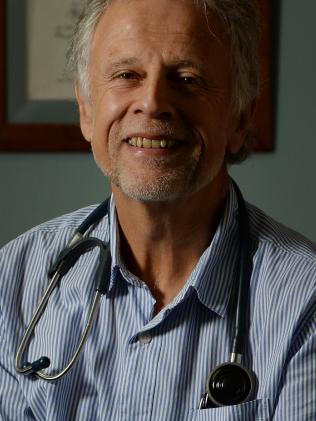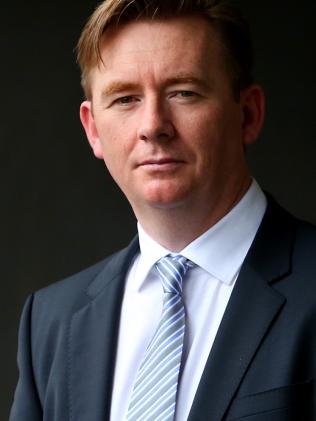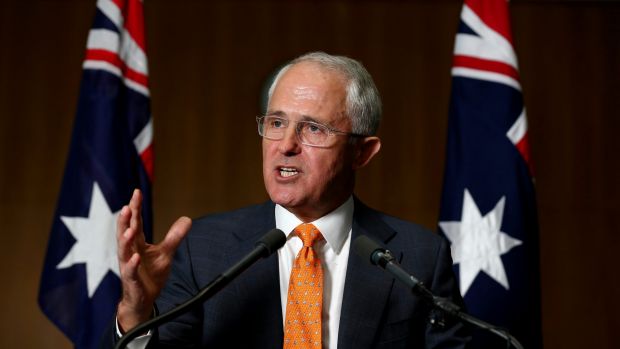
Doctors say ordinary Australians will suffer the most under the rebate freeze, as medical practitioners stop bulkbilling and hike prices.
With the freeze introduced in 2013 extended to 2020 in the Budget, doctors say costs can no longer be absorbed, and patients are about to start feeling the financial pain.
Not only will it impact our pockets, GPs say a continued freeze will be devastating for the health of the nation, in turn putting further strain on hospitals.
“Many patients won’t go ahead with treatment or will defer,” Brian Owler, president of the Australian Medical Association, told news.com.au. “They may end up sicker and need more expensive care.
“The worst impacts will be in areas where there are low socio-economic groups — people with chronic diseases, young families with kids — doctors won’t be able to bulk bill these patients.
“We’ve reached a tipping point.”
The Royal Australian College of General Practitioners said around a third of GPs have announced they are going to stop bulk billing and introduce mixed billing, where patients will be charged “significant fees”.


It has created ominous warning notices that doctors began displaying in their clinics this week. “Danger,” reads one poster. “You and your family’s health is being targeted. The extended freeze on Medicare rebates means you will pay more!”
Prescription pads are being printed with rallying cries on the back, telling patients about the effects of the freeze on their bills, and patients are being given template letters to send to their MPs.
“Other types of care can cost four to 10 times more than a GP,” Frank Jones, president of the RACGP, told news.com.au. “This is going to have a huge impact on patients and the community.
“It’s going to be a long campaign.”

He said doctors would find it “impossible, emotionally and physically” to charge palliative patients, or those who were homeless, but that the socio-economically disadvantaged and pensioners in an ageing population would suffer.
Bulk-billing rates for GP services are at an all-time high of 84.3 per cent, having continued to rise around one per cent each year even after the freeze began in 2013.
The Medicare rebate covers only about 50 per cent of the consulting fee recommended by the AMA, and “that’s just not sustainable for GPs,” Dr Bastian Seidel told news.com.au.
“It’s just a punch in the face,” he said. “It’s a massive problem for our patients. Medical practices may not be viable.
“Patients say it’s ridiculous. They get tax breaks, but pay more. It doesn’t make sense.”
#medicare australia Freeze the Medicare rebate for another two years. Freeze politicians pay rises as well.
— The Truth Fairy (@Gimp4930) May 10, 2016
Will there be a question about the continued Medicare Rebate Freeze? This will cease bulk billing making it harder to access care. #qanda
— Paul Schiavo (@puts77) May 9, 2016
He said GPs currently only cost the Government as much as its private healthcare subsidy, $6 billion a year each. While the Government is funding “junk policies” in private health insurance, he said, it would only cost taxpayers an extra $160 million a year to lift the index freeze for GP item numbers.
“This is a politically motivated Budget, not an evidence based one,” he added.
Back in 2014, the RACGP conducted a successful campaign to stop Tony Abbott’s unpopular $7 GP co-payment. The Medicare rebate freeze has been called a “co-payment by stealth”, but Dr Seidel said it there was no stealth involved, “it’s a real co-payment.”
It’s also likely to be significantly more than $7.
Medicare rebate freeze will affect all. pic.twitter.com/wOWUisClLg
— Dr Kevin Yong (@EatMoveChill) May 9, 2016
Healthcare should be equitable! The Medicare rebate freeze is NOT the way! #youvebeentargeted #healthelection16 https://t.co/nKyjmZt13k
— Alvin Chua (@alvchua) May 12, 2016
The health department can’t predict whether the freeze will leave patients facing higher out-of-pocket costs, department deputy secretary Andrew Stuart said last week.
For patients who aren’t bulk-billed, out-of-pocket costs have continued to increase by an average of five or six per cent every year as they have for most of the decade, he said.
The pressure on the government over this issue is going to be intense over the coming weeks.
Dr Owler said the subject of health was “almost taboo” during the last election campaign, but now it’s the most important issue. “It will be important to see what both parties’ intentions are,” he added, with Labor yet to say whether they would keep or lift the freeze.
While it is doctors who have issued a call to action, the anger from patients is just beginning.
It is they who are expected to fight Turnbull’s freeze, every step of the way on this long campaign trail.
